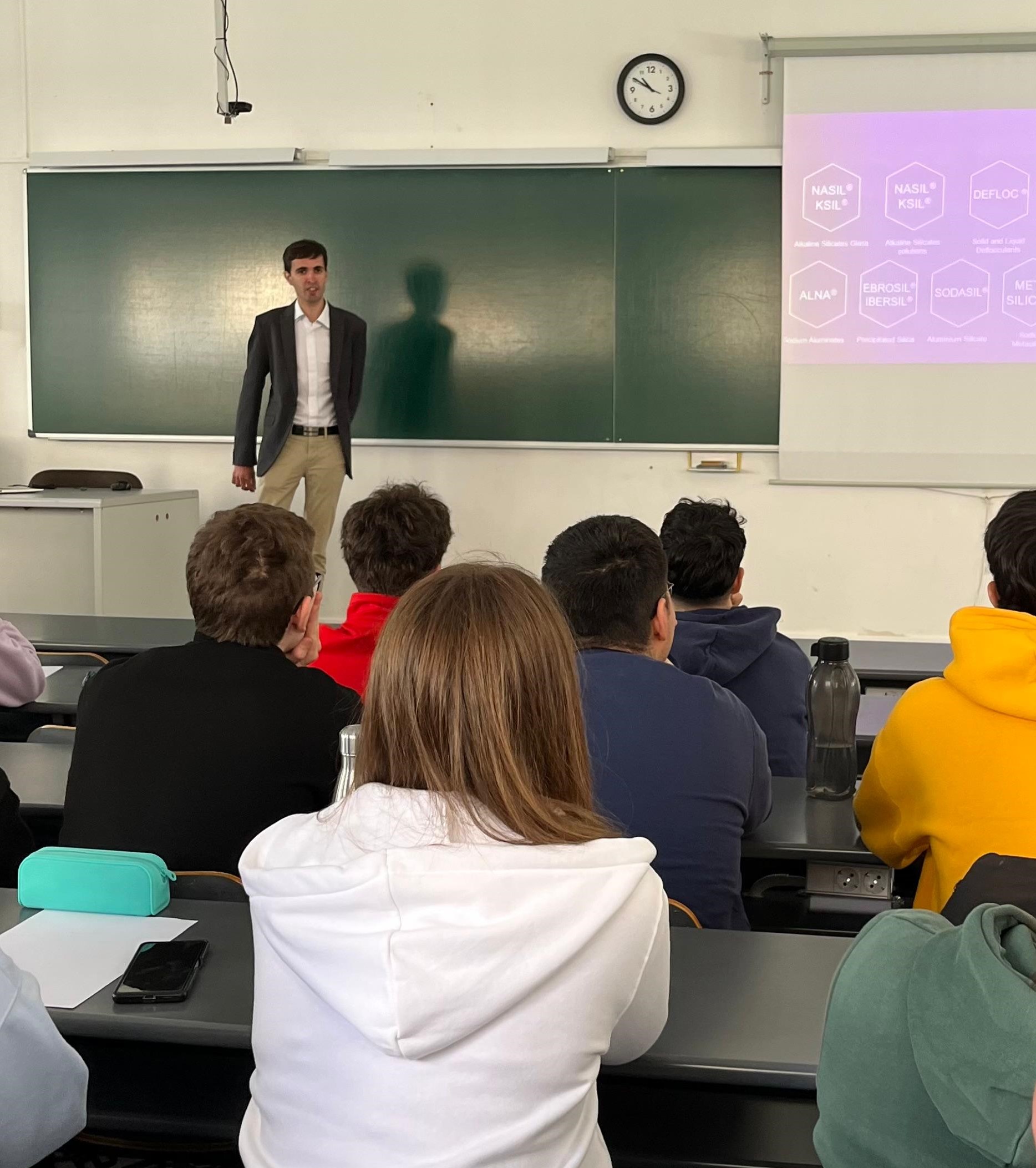The SOCOTEC Circular Engineering Chair of the University of Zaragoza, carried out on May 8 the last day of the Expertia program with the company Industrias Químicas del Ebro.
The SOCOTEC Circular Engineering Chair of the University of Zaragoza, participated again in the Expertia program, an initiative of the University of Zaragoza, by which one or more experts carry out training to students in relation to the subject that the students are studying. On this occasion, the chair collaborated with Industrias Químicas del Ebro, a leading company in the chemical sector, to enrich the educational experience of the students.

EXPERTIA PROGRAMME
DRIVE FOR A MORE SUSTAINABLE INDUSTRY

The training, designed to offer dynamic and practical learning, lasted two hours. The first session was led by Sergio Gracia, head of sustainability business development at SOCOTEC, who introduced the participants to the concept and importance of the circular economy, in the scope of work of the SOCOTEC Chair.
Miguel Cano, R+D+i researcher at Industrias Químicas del Ebro, graduated in Chemistry from the University of Zaragoza and PhD in Organic Chemistry, shared experience and knowledge on the practical application of the circular economy in the chemical sector. Through concrete examples and real cases implemented in their company, the students were able to tangibly visualize how these principles can transform the industry towards more sustainable and efficient practices.
The training, designed to offer dynamic and practical learning, lasted two hours. The first session was led by Sergio Gracia, head of sustainability business development at SOCOTEC, who introduced the participants to the concept and importance of the circular economy, in the scope of work of the SOCOTEC Chair.
Miguel Cano, R+D+i researcher at Industrias Químicas del Ebro, graduated in Chemistry from the University of Zaragoza and PhD in Organic Chemistry, shared experience and knowledge on the practical application of the circular economy in the chemical sector. Through concrete examples and real cases implemented in their company, the students were able to tangibly visualize how these principles can transform the industry towards more sustainable and efficient practices.
The session closed with a dynamic activity that contained questions related to the presentations made. In this activity, students had the opportunity to test and demonstrate the knowledge acquired during the morning. This not only consolidated the topics covered, but also encouraged participation and practical application of the concepts learned.



